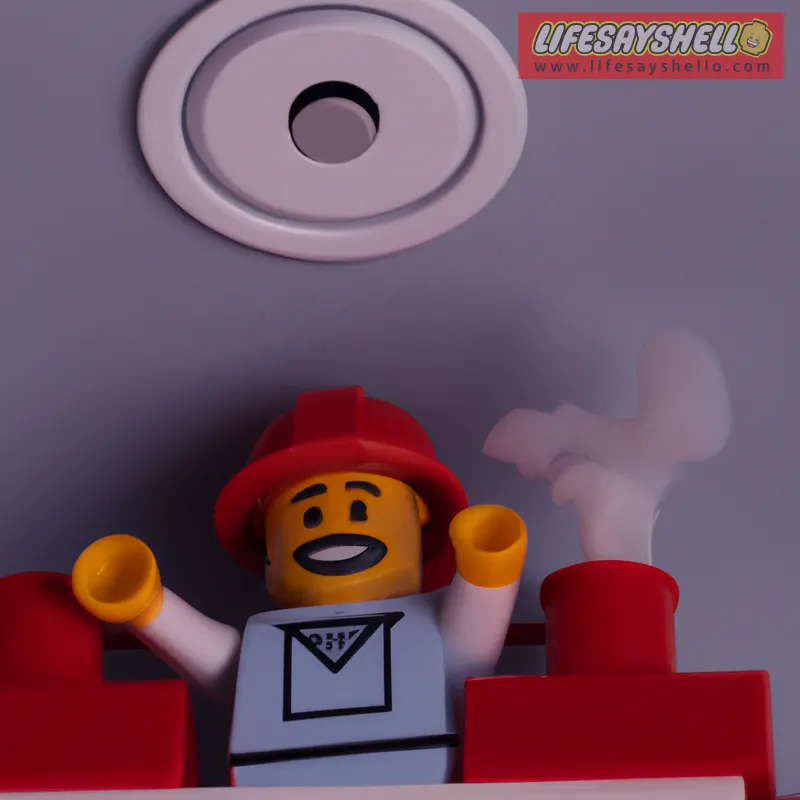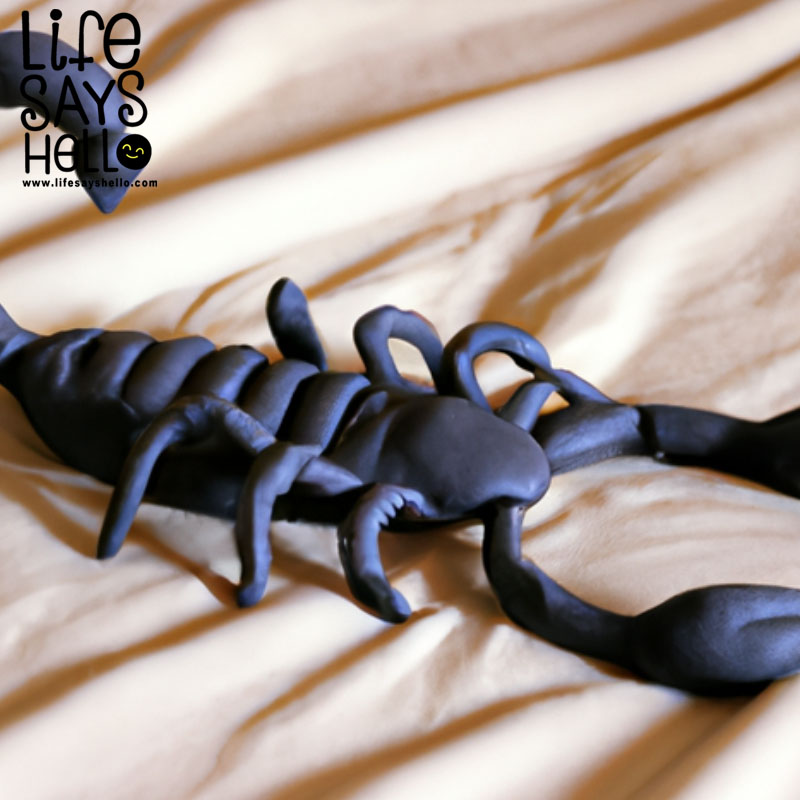Why Is Your Smoke Alarm Going Off for No Reason? 7 Common Causes

Is your smoke alarm randomly beeping, chirping or going into full alarm mode when there's no sign of smoke or fire? Few things are more annoying or confusing than smoke detector false alarms. But don't dismantle your smoke alarm in frustration before troubleshooting the issue.
Smoke alarms are absolutely vital for home fire safety. Functioning smoke alarms cut the risk of dying in a home fire in half, according to the National Fire Protection Association (NFPA). So you definitely want to keep them operational. When your smoke detector starts exhibiting unexplained behaviors, it's important to get to the bottom of what's causing the false alarms.
In this article, we'll explore the 7 most common causes of smoke alarm false alarms. Once you know what triggers these annoying false alarms, you can take steps to stop the unnecessary smoke detector sounds and keep your home safe.
1. Low or Dead Smoke Detector Batteries
The number one reason smoke alarms go off randomly when there's no fire is depleted or missing batteries. Smoke detectors are powered by batteries, which drain over time. Once smoke alarm batteries start running low, the alarm will begin "chirping" or making noise intermittently to alert you the battery needs replacement.
If you ignore these early low-battery warnings, the batteries will continue to drain until they're fully dead. When the batteries completely die, the smoke detector will often give one long alarming blast before shutting off. This dying battery alarm can be startling if you aren't aware the batteries need changing.
To prevent low-battery false alarms, the NFPA recommends replacing smoke alarm batteries at least once every year. The easiest way to remember is to change smoke detector batteries twice a year when you change your clocks for daylight savings time. Mark your calendar and make smoke detector battery replacement a habit.
All smoke alarms should have their batteries replaced over time, but ones that are over 10 years old may not stop false alarming even with new batteries. It's generally best practice to replace your entire smoke detector unit every 8-10 years.
2. Problematic Smoke Detector Placement
Where you place your smoke detectors can also cause them to false alarm when no fire is present. Two of the most problematic spots are mounting smoke alarms too close to kitchens and bathrooms.
Kitchens are prone to producing small amounts of smoke and odors when cooking. Things like burnt toast, greasy fumes from frying, or even excessive steam can set off a smoke detector if it's positioned too close to your stove or oven. As a rule of thumb, smoke alarms should be at least 10 feet away from cooking appliances to avoid false kitchen alarms.
Bathrooms can also be culprits if the smoke detector is located too close. Steam from hot showers can make its way to your smoke alarm and cause it to go off. Even just running very hot bath water may produce enough ambient steam to trigger a nearby smoke detector mounted on the ceiling.
Installing smoke alarms near HVAC vents that connect to kitchens or bathrooms can also pick up cooking fumes or steam. It's best to avoid placement near any vents at all.
Likewise, smoke detectors positioned near exterior doors and windows are prone to drafts and changes in airflow that can interfere with their sensors. It's better to mount smoke alarms on interior wall ceilings whenever possible.
Take a look at where current smoke detectors are positioned and see if relocating them farther from kitchens, bathrooms or drafty spots helps reduce unexplained alarms. Also be sure there's no furniture, curtains or other obstructions within 3 feet around the smoke alarm.
3. Smoke from Burnt Food
Even if your smoke detector isn’t too close to your kitchen, burnt food odors can still make their way throughout your home's air circulation and set off alarms. Things like burnt popcorn, charred pizza, smoky oven spills and even burnt microwave popcorn bags are common kitchen culprits.
Practice attentive cooking and promptly remove any burning or overcooked food from heat sources. Always turn on exhaust fans or open windows while cooking to ventilate your kitchen fully. Keep interior doors shut to contain cooking odors in the kitchen area.
A small, contained kitchen fire like grease igniting in a pan can also create enough lingering smoke to set off your smoke detectors after the fire’s been put out. Be sure to fully air out your home after any minor stove or oven fire.
4. Steam and Humidity
In addition to steam from bathrooms discussed previously, other humid conditions in your home can also trigger false smoke alarm activations. Boiling large pots of water, using humidifiers, and hanging lots of wet laundry indoors to dry can all increase ambient moisture in the air. When moisture saturates the air it can then seep into your smoke detector’s sensory chambers.
Run exhaust fans, open windows, and improve overall ventilation whenever you're producing extra steam or humidity indoors. You may also want to relocate excessively humidity-sensitive smoke alarms away from kitchen and laundry areas in your home.
High outdoor humidity and summer storms can also contribute to more sensitive smoke alarms. Try running your AC to lower indoor humidity on steamy days. Improving airflow and ventilation is key to keeping moisture from falsely setting off smoke detectors.
5. Dust and Debris Buildup
An excess accumulation of dust, dirt, and debris can cause smoke alarm sensors to get overloaded and false alarm. This is especially common if you've recently done renovations or projects that kick up extra dust, dirt and particles like:
- Remodeling, construction or drywall work
- Wood sanding
- Painting, wall texturing or spraying chemicals
- Major housecleaning like vacuuming out HVAC vents
All these activities put lots of contaminants into the air that can clog up your smoke detector chamber. Be sure to cover smoke alarms when doing any dust-producing work, and give the air time to fully settle before removing the covers.
Routine dusting and gently vacuuming smoke detector covers every few months will also prevent problematic dust buildup over time. Never try to unscrew the cover and vacuum out the sensor chamber itself, just the external housing.
6. Fumes from Household Chemicals
Smoke detectors can sometimes interpret chemical smells, vapors and fumes as smoke or combustion. Things like paint, cleaning products, spray adhesives, hairspray and other strong-smelling products you use around your home can be culprits. This tends to be more of an issue with older ionization-type smoke alarms, as newer photoelectric models have better discrimination.
Try to use all pungent household chemicals outside or in well-ventilated areas. Open windows and turn on fans to circulate fumes outside rather than allowing them to make their way to your smoke detectors. Also cover nearby smoke alarms when doing projects with strong-smelling chemicals.
7. Bugs or Insects in Detector
The occasional bug or insect flying into your smoke detector can mimic smoke and cause false alarms. More often, dead bugs that get trapped in the detector chamber can interfere with the sensor system when they decay. Spider webs, moths and flies are prime offenders.
The best prevention is installing new smoke alarms with insect screens or covers to prevent bugs from getting inside in the first place. For existing smoke detectors, gently vacuum off any visible webs, cocoons or dead insects from the surface. You can also use compressed air blown into the chamber to clear out debris. Just be careful not to damage the fragile sensor array inside.
What To Do When Your Smoke Detector False Alarms
When your smoke alarm starts exhibiting unexplained alarms or beeping, don’t just disable it in frustration without first doing some troubleshooting:
- Check for low batteries and replace if needed.
- Inspect for dead bugs or debris inside and clean if visible.
- Note if high humidity like steam or rain is present.
- See if strong chemical odors are in the air from household products.
- Look for signs of burnt food or haze in the house.
- Be aware if airflow is being blown directly on the alarm from a fan, AC vent or draft.
If the false alarming persists even after addressing these common causes, the smoke detector sensors themselves may be faulty. Contact the manufacturer if your smoke alarm is still less than 10 years old, as it may be covered by warranty.
While smoke detector false alarms are a nuisance, you never want to ignore, cover up or disable an alarm just because it seems unnecessary. Always thoroughly investigate in case an unseen issue like a smoldering electrical fire is the cause. Stay safe and take time to properly maintain your smoke detectors.




Comments